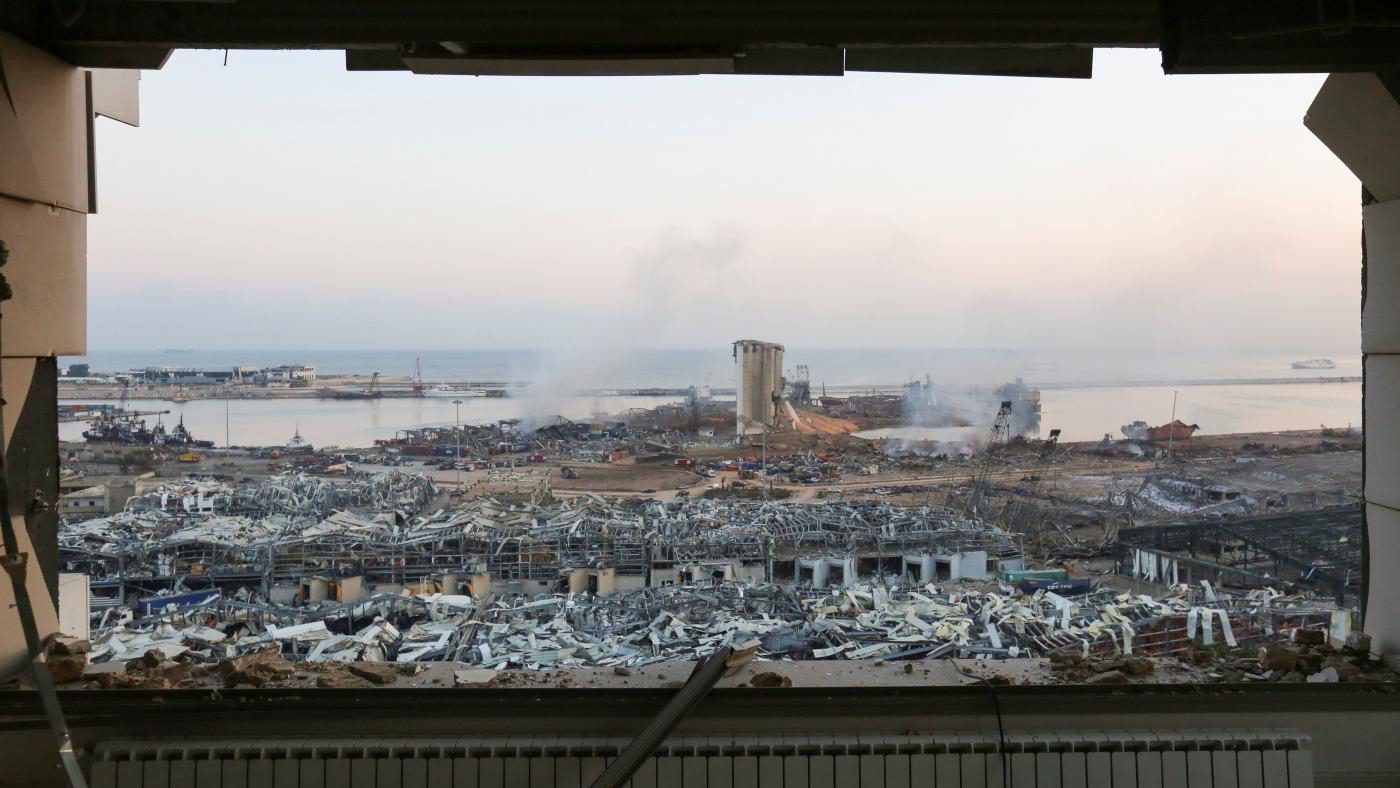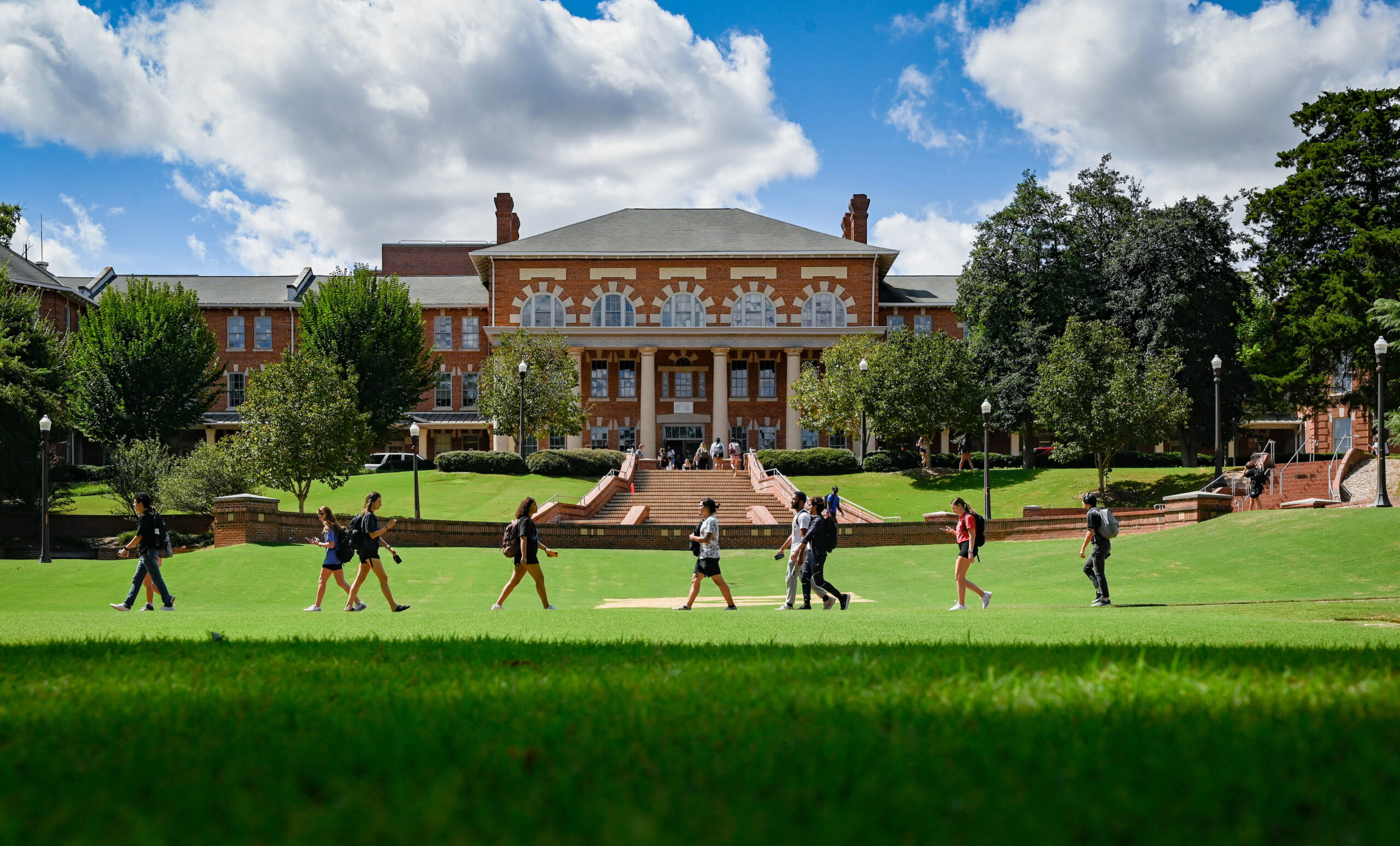The Noble Sentiments: A Community in Transition
This post is written by Dr. Akram Khater, Director of The Khayrallah Center and Professor of History at NC State University, a University Faculty Scholar, and the editor of the Mashriq and Mahjar: Journal of Middle East and North African Migration Studies. He has published extensively on Lebanese migration to the U.S..

On Saturday, April 7th, 1923 the social and intellectual elites of the New York Syrian Colony gathered at a banquet held in Hotel Bossert (Brooklyn). The event was organized to celebrate the Silver Anniversary of one of the earliest Lebanese-American newspapers, al-Huda [Guidance], and its founder Naoum Mkarzel. It was equally an opportunity for the now well-established community to reflect upon its past and current state of affairs. The moment was captured in a book of Arabic speeches and poems delivered at the banquet and edited by Yaqub Rouphail (editor of al-Akhlaq [Manners] magazine; also based in New York City), and titled The Noble Sentiments (المشاعر الشريفة). Among those who spoke were well known Arab-American authors such as Gibran Khalil Gibran, Mikhail Nu’aymeh, Nadrah Haddad, and the early Arab-American feminist writer Afifa Karam. In addition, there were musical performances by the composer Iskandar Ma’alouf (who wrote an Arabic version of America the Beautiful, titled America ya hilwah) and songs by “Miss” Ethel Emily Ayyoub. For the most part, the speeches and poems were panegyric of Mkarzel, al-Huda and the press, applauding their collective accomplishments and indirectly congratulating the emerging bourgeoisie of the community on the heights its members have achieved.

The community did have much to celebrate. In the short 35 years since its earliest member arrived in the US, it had been able to spread throughout the country, register many stories of financial success, establish numerous newspapers, community and religious organizations, and even mobilize nationally around immigration issues. It had produced a class of literati who not only wrote of the diasporic experience, but in the process also helped to reshape the Arabic language into a modern one. By the 1920s its ranks included doctors, lawyers, engineers and other professionals, and the sons and daughters of the first generation were attending colleges and universities. The night, and book, opened with a self-congratulatory note about how well organized everything was from the choice location to the “elegant” place cards and program. Embedded in these observations were the “American” orderly fashion of the party, as juxtaposed with the “chaos” that is implicitly assumed of “Syrian” events. In other words, the celebration was as much about the immigrants’ gentrification as middle class “Americans,” as it was about the newspaper and its founder. The clothes and menu only reaffirmed this: tuxedos and evening gowns were the dress code, and the food served was not remotely Lebanese. The photos—of the speakers, organizing committee, those who donated commemorative gifts in person or absentia—were equally displays of the elite status acquired, or aspired to, by those who deemed themselves the scions of Lebanese-American society.
Yet, despite the glitter in settings, outfits and words, all was not well with the community. Beneath the lofty title of the evening (and the book) were simmering sectarian and political tensions that had long beset the community and divided it, and that surfaced through the generally gauzy text into backhanded compliments and outright critiques. The first discordant note was struck by the meditative author Mikha’il Naimy, whose best-known work is The Book of Mirdad. Educated in Lebanon, Russia and the US (he received his degree in Law and Liberal Arts at the University of Washington in 1919), Naimy went on to produce over 30 books including a collection of poems—The Whisper of the Eyelids—which deeply influenced Arabic poetry and poets. He set the tone for his critical speech by noting that some of those in attendance are so self-absorbed that “must think that this is the most important thing happening in the universe at this moment.” From there he proceeded to critique the state of early Lebanese press as nothing more than “shovels in the hands of its owners to undermine the fortifications of their enemies and build up the towers of their influence, and to gather riches in the easiest and fastest means.” Thus, and rather than join the chorus of praise on the media—and by extension the social elites gathered that night–he leveled criticism at them for their pursuit of money and abandonment of its “intellectual and literary health.”
Another speaker, As’ad al-Malki, took up this theme of opportunism amongst news publishers. He wrote that the journalist is “responsible for building up the community but also its destruction.” What marks the difference is whether the journalist is a social parasite who regards his newspaper [the great majority of the 100 newspapers and magazines published between 1890 and 1940 were owned by men] as the means to attain his goals, and a weapon to wield against his enemies. In contrast, he noted, the true journalist is like “a doctor, soldier and preacher. As a doctor he heals social ills…as a soldier he defends morals and rights, and as a preacher he guides to the straight path.” He concluded his comparison by lamenting that the community remained beset, for the greatest part and in that it reflected the “lack of refinement and advancement that characterized our morals, habits, commerce, organizations, funerals and parties.” But perhaps what captures the state of the community best was the speech that Naoum Mkarzel (editor of al-Huda) gave several months later at an identical reception held in his honor in Mexico City. (The speeches and poems of that event form the second part of the book). After rehearsing the history of Lebanon and the devastation it suffered during WWI (with one quarter to one third of the population perishing from a 2-year famine), he lamented the inaction of those in the diaspora against such horrors. He told his audience, “You are like the rest of the Lebanese and Syrians: strong as individuals and weak as a community.” While hyperbolic in his dismissal of the community, there is no doubt that as late as 1923 Lebanese-Americans were still a long way from being the harmonious and united community The Noble Sentiments sought to portray. Hidden from view that night were also the stresses of migration on individuals, families and community, the failures of business ventures, the difficulties of assimilating into a society that looked upon immigrants with contempt and paternalism, and discord driven by gender and class tensions. Recognizing these issues is not only central to telling the un-sanitized and more complete stories of Lebanese-Americans, but it also helps us appreciate and celebrate the success all the more. You can find a digitized copy of the original Noble Sentiments in the Khayrallah Center’s Digital Archive. Note that the text is in Arabic. Researchers are welcome to reference this text, but please respect the Rights Statement and use the suggested Citation for the resource.
- Categories:


